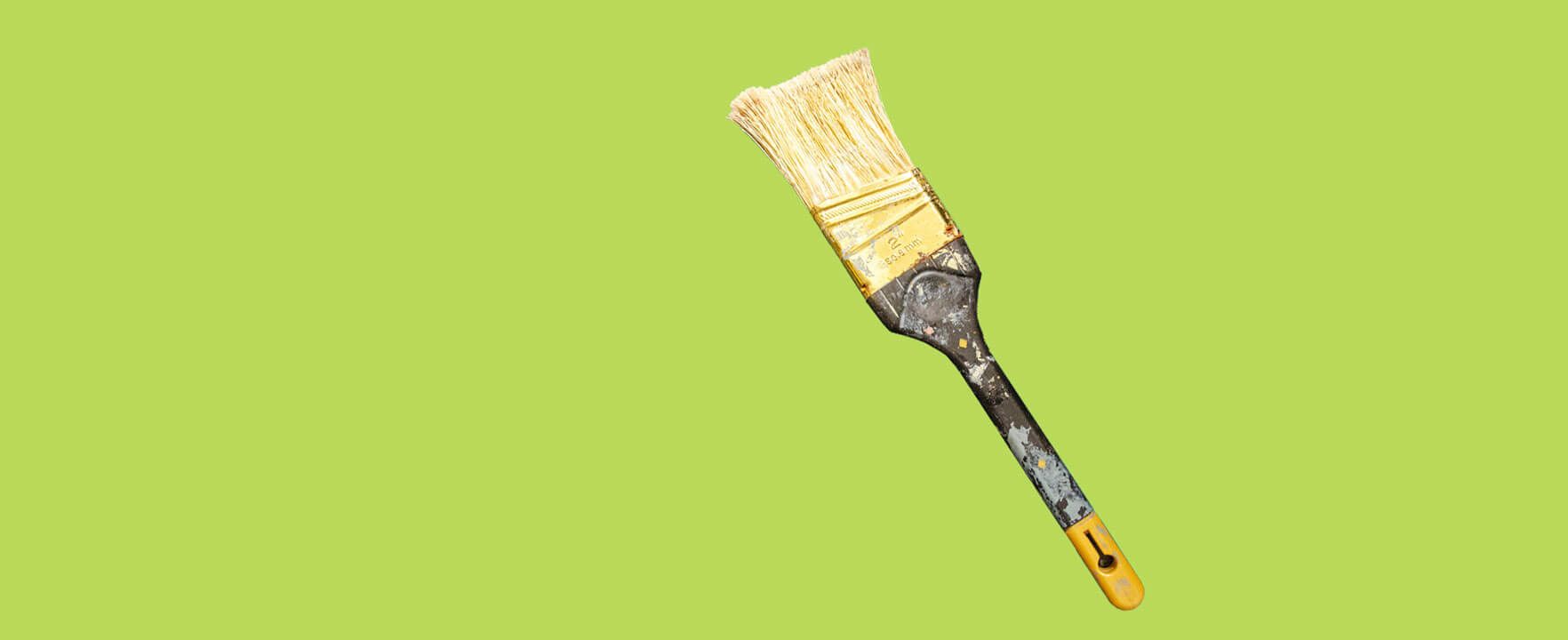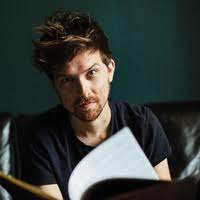History hasn’t been kind to Indigenous voices, but today, there are many artists — directors, poets, photographers, sculptors, painters, and more — fighting against society’s outdated perceptions of Native life and experiences.
Now more than ever, their works can be seen in art museums, in movie theaters, and on television screens around the world, and as society finally begins to reckon with its centuries of mistreatment of these First Peoples, Indigenous expression continues to be vital. These 13 quotes from Indigenous artists display the wisdom of the world’s ancient communities, and show a resilience of spirit that should never be ignored.
The responsibility of the artist is to make work that's real and that's reflective of something that's true. You have to be true to your own vision of the voice you're trying to find.Andrew Okpeaha MacLean, film director
Iñupiaq filmmaker Andrew MacLean grew up in Utqiagvik, Alaska (formerly Barrow), the homeland of the Iñupiat, an Inuit ethnic group. Maclean’s 2008 film Sikumi is the first to ever be entirely written in the Iñupiaq language. His film On the Ice, which is set in Utqiagvik and features a Native cast, premiered at the Sundance Film Festival in 2011, where it won Best First Feature.
I just think it's important that artists and musicians work even between the creative spurts, that they try to force inspiration even if they think nothing good will come of it. It's good to keep the mind and imagination active and ready to receive.Samantha Crain, musician
Born in Shawnee, Oklahoma, Choctaw singer-songwriter Samantha Crain has produced seven full-length albums. Her signature blend of country, folk, and indie rock has won her two NAMMYs (Native American Music Awards) and the Indigenous Music Award for Best Rock Album. She also knows a thing or two about creating through adversity. In the summer of 2017, Crain was involved in three car accidents in the span of three months. Unable to use her hands, she dictated voice memos on her phone to continue writing. As soon as she could play guitar again a year later, she produced her latest album, A Small Death.
I release you, my beautiful and terrible fear. I release you. You were my beloved and hated twin, but now, I don’t know you as myself.Joy Harjo, poet
A member of the Muscogee (Creek) Nation, Joy Harjo is a musician, poet, and playwright who in 2019 became the first Indigenous person to be named U.S. Poet Laureate. Harjo blends genres by injecting musicality into her writing, so that every poem is a kind of song. She has released seven albums and more than a dozen books of poetry, and remains a vocal advocate for Native American rights.
Failure is a brilliant thing. It teaches you a lot of stuff, you end up coming up with better ideas when you fail at things. I think what’s really great is learning to embrace bad creative experiences.Taika Waititi, filmmaker
Although he’s known best for his Marvel films, such as 2022’s Thor: Love and Thunder, Taika Waititi is also beloved for his comedies, including movies like Jojo Rabbit and TV shows including What We Do in the Shadows. A descendant of New Zealand’s Te Whānau-ā-Apanui — a Māori iwi (“iwi” means “tribe”) — Waititi has created films with Māori protagonists, such as Hunt for Wilderpeople (2016) and Boy (2010), in an effort to normalize Indigenous actors in stories beyond those about historical traumas.
Our humor has always existed next to tragedy and drama. It was a coping mechanism, our humor. It was a way of survival during hard times.Sterlin Harjo, filmmaker
Sterlin Harjo’s films and hit FX comedy series Reservation Dogs have two things in common: They’re set in Harjo’s home state of Oklahoma, and they explore the complexities of being an Indigenous person in America. Premiering in August 2021, Reservation Dogs has become a critical darling. It was co-created by Harjo, a citizen of the Seminole Nation, and New Zealand filmmaker Taiki Waititi.
When the last tree is cut down, the last fish is eaten, and the last stream poisoned, you will realize that you cannot eat money.Alanis Obomsawin, filmmaker
During her long career, Alanis Obomsawin has directed dozens of films, including such groundbreaking documentaries as Incident at Restigouche (1984) and Kanehsatake: 270 Years of Resistance (1993). Obomsawin, whose name means “pathfinder,” is a member of the Abenaki Nation, a territory that originally stretched from New England to Quebec. In 2008, she received the Governor General’s Performing Arts Award, one of Canada’s highest artistic accolades.
I realized the artwork made itself. It was just waiting for me to see it.Cara Romero, photographer
A member of the Chemehuevi Indian Tribe, Cara Romero describes her upbringing as a tale of two settings: the rural reservation in the Mojave Desert and the urban sprawl of Houston, Texas. Romero uses photography to portray the Native female experience in a modern way. Her work eschews old stereotypes and recasts what it means to be Indigenous in the 21st century.
What you see on the surface is never the same again once you begin to plumb the depths.Jaune Quick-to-See Smith, visual artist
For nearly 50 years, Jaune Quick-to-See Smith has been creating complex, abstract paintings about the Indigenous experience. Her work can be found in art museums around the world. Smith recontextualizes the myths of her Salish ancestors and places them in conversation with social issues facing America today.
My last name is Pe’a, which means “a sailboat”… We all have to hoist our own sail and chart our own journey. We have to be effective through change.Kalani Pe’a, singer
Recording artist Kalani Pe’a describes his music as “Hawaiian contemporary soul” — and clearly it’s a sound that works. Since his first album release in 2017, the Hawaiian artist has scored three Grammys in the Best Regional Roots Music Album category. Pe’a also speaks fluent Hawaiian and is an ardent supporter of keeping the islands’ Native language alive.
I am part of this continuum. We all have a position. Do you know yours?Nicholas Galanin, visual artist
An Indigenous artist of Lingít and Unangax̂ descent, Nicholas Galanin draws inspiration from his homeland to create art across a variety of mediums, from sculpture to music to multimedia installations. Found in museums throughout the world, Galanin’s work fights against cultural misconceptions about Indigenous peoples and the boundaries society places on those communities.
Nature has laws that we don’t understand, which is why we always feel a drive to colonize the land and impose our own laws, which often doesn’t work.Warwick Thorton, film director
In 2009, director Warwick Thorton won the Camera d’Or at the Cannes Film Festival for his debut feature film Samson and Delilah, which delivered an unflinching look at the multiple crises enveloping Aboriginal communities in Australia. The Kaytetye director explained in an interview that the story was extremely important to him: “Everything that's in the film I've seen personally.”
Blankets are universal. They are intimate objects that cover, protect, insulate, nurse, celebrate, and adorn. Despite — or perhaps owing to — their ubiquity, we often take them for granted. Blankets receive infants into the world, and shroud us when we die.Marie Watt, visual artist
Marie Watt is a member of the Seneca Nation of Indians who works primarily with textile art and fabrics. Inspired by Iroquois tales and traditions, her exhibit “Blanket Stories” collected donated blankets and told the stories of the people behind them. “Among Native people it is as much of a privilege to give a blanket away as to receive one,” Watt reflected.
The Creator has given me the strength to look forward in life, to embrace the beautiful and the positive. Now I truly walk in beauty.Radmilla Cody, singer and model
Singer Radmilla Cody was born and raised in the Navajo Nation as a sheepherder. As a girl she sang on top of a sheep corral with only animals as audience members. In 2002, she sang the Navajo version of the national anthem at the Kennedy Space Center before the launch of astronaut John Herrington, the first member of a Native tribe to fly in space. Her 2011 album Shi Keyeh was nominated for a Grammy for Best Regional Roots Music Album.
Featured image credit: Robert Ruggiero/ Unsplash
















